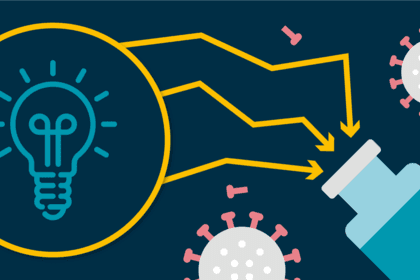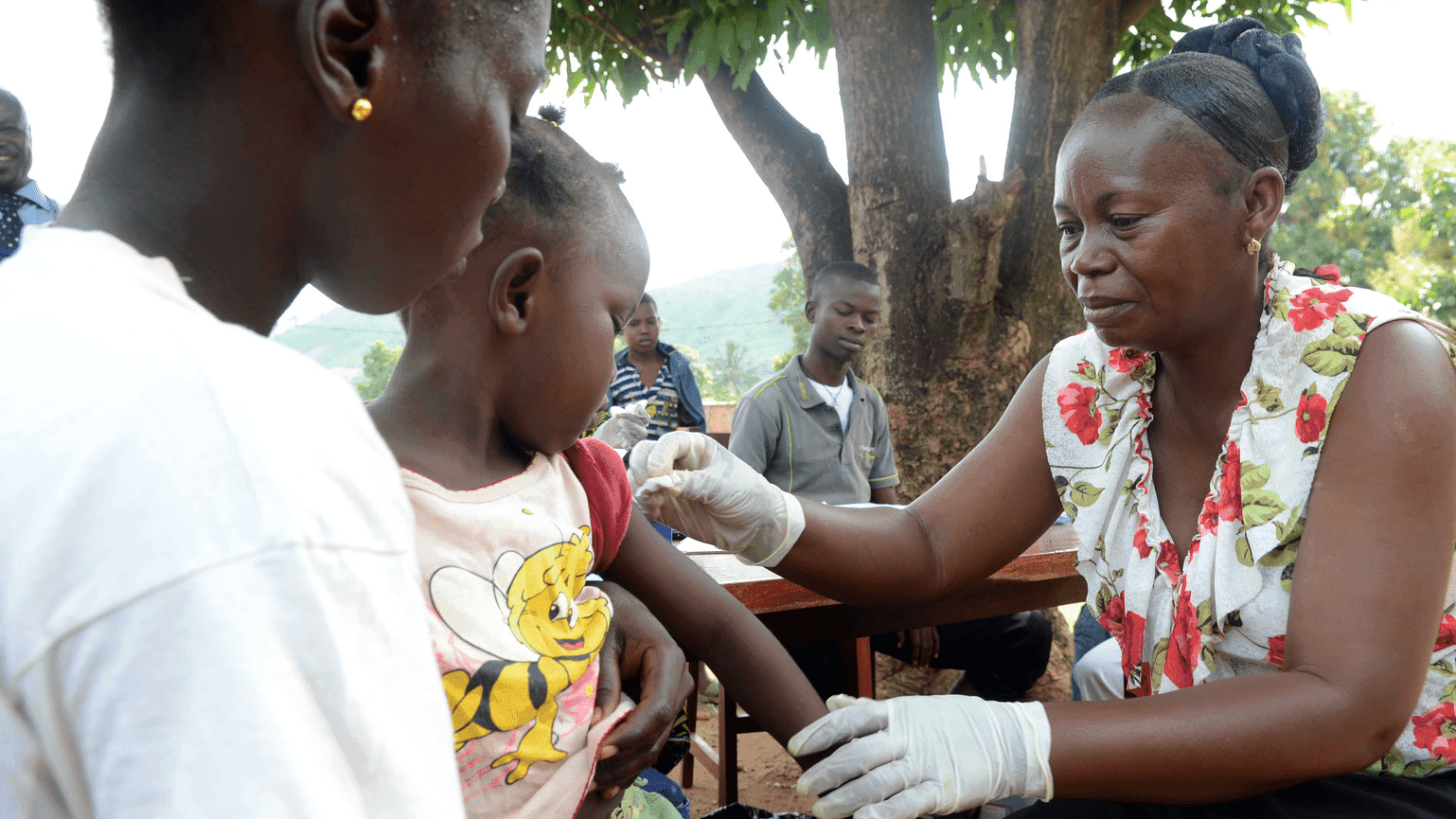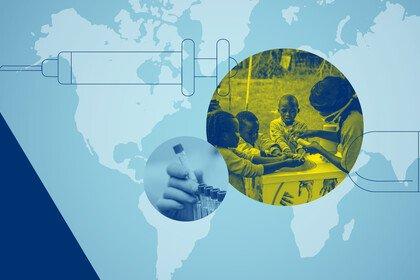
While we wait for a Covid-19 vaccine, let's not forget the importance of the vaccines we already have
With measures to prevent the spread of Covid-19 disrupting childhood and mass immunisation around the globe, millions are now at risk of other deadly diseases. This is why we must act and invest urgently to maintain routine immunisation.

In the early days of the Covid-19 pandemic, mass vaccination campaigns were paused [PDF] to reduce the risk of spreading the virus. As well as official restrictions on people’s movements, some parents – understandably worried and uncertain – have been reluctant to take their children out to get vaccinated. This has been compounded by the new challenges facing health workers, including restrictions on travel, redeployment to the Covid-19 response, and a lack of protective equipment.
A recent statement from the World Health Organization, UNICEF and Gavi, the Vaccine Alliance lays bare the immediate and quite staggering effects of this – the biggest of which are being felt by children in low-income communities. It showed that routine immunisation services have been substantially hindered in at least 68 countries, affecting approximately 80 million children under the age of 1.
A further 24 million people in Gavi-supported lower-income countries are at risk of missing out on vaccines against polio, measles, typhoid, yellow fever, cholera, rotavirus, HPV, meningitis A and rubella. It is in these communities, that often have poor access to health care and treatments, that vaccines are of the highest importance. By providing protection against infection in the first place the vaccines can mean the difference between life and death.
Even in countries where Covid-19 transmission remains high, the argument for keeping up routine immunisation is persuasive. New analysis has shown that in Africa, for each death caused by Covid-19 acquired from an immunisation visit, there could be more than 100 children’s deaths prevented by continuing routine immunisation. A difficult and delicate balance must be struck between lockdown measures that reduce the risk of Covid-19 and maintaining safe immunisation that will prevent other devastating outbreaks in the months and years to come.
Mass immunisation not only saves lives, it also gives vital insights into the health of communities around the world. The fewer vaccines that are given, the fewer interactions there are between health care workers and communities. This effectively leaves local health systems blind to the spread of disease and what they need to do to prevent further infections. Without this insight that immunisation systems provide, it will be evermore difficult to target the most at-risk communities with the vaccines they need to stay healthy.
Keeping immunisation systems and structures active throughout this time also means that they will be ready and resourced to deliver a Covid-19 vaccine when one is developed. Billions of doses will be required to stop the spread of the virus. This enormous undertaking will require the support of regional and national immunisation systems to get the vaccine to everyone that needs one.
The Covid-19 pandemic has shown us the importance of a single vaccine – for our health, for our connection to family and friends, and for economies around the world. During this crisis we must not develop tunnel vision and forget the importance of our existing vaccines or the dangers of the diseases they protect us from.
We need governments to continue to champion and invest in immunisation systems in every country, starting today. Supporting Gavi to deliver life-saving vaccines in the world’s poorest countries is a great way to do this. Since it was set up 20 years ago, Gavi has prevented more than 13 million deaths through routine immunisation.
The world has never faced a problem like the one we are facing. We need short-term action as well as long-term thinking to balance getting control of the pandemic by developing vaccines, tests and treatments, with maintaining essential routine immunisation. If we can do this, we can reach a world where everyone, everywhere has access to lifesaving vaccines.


